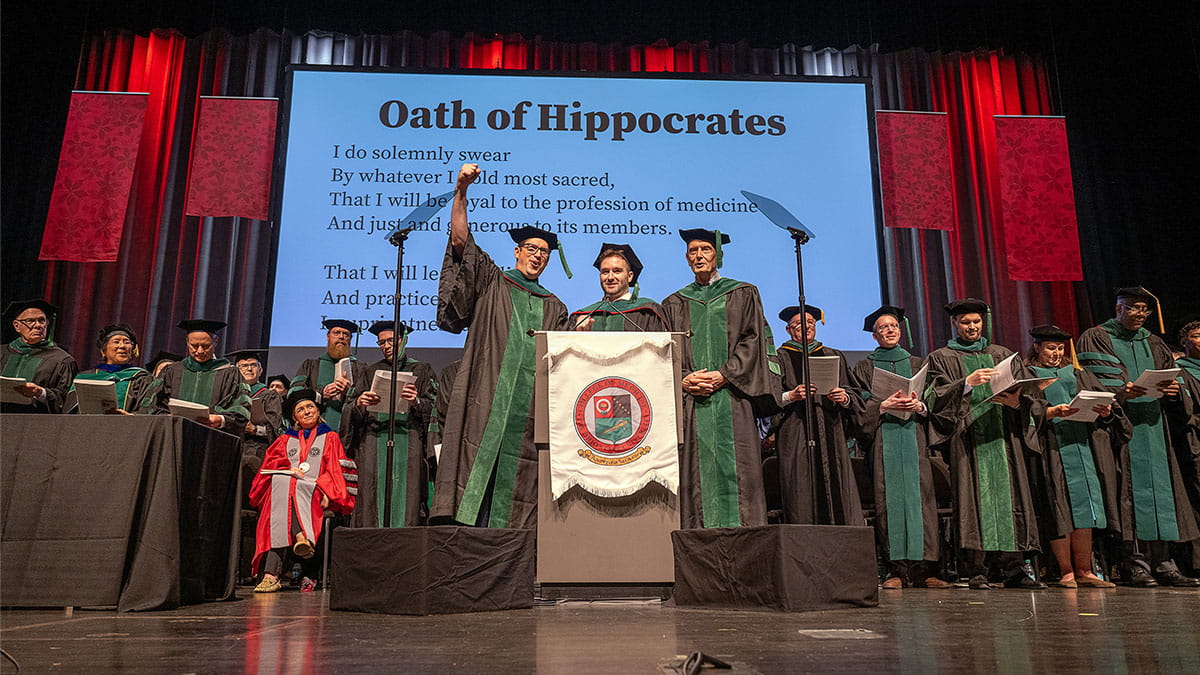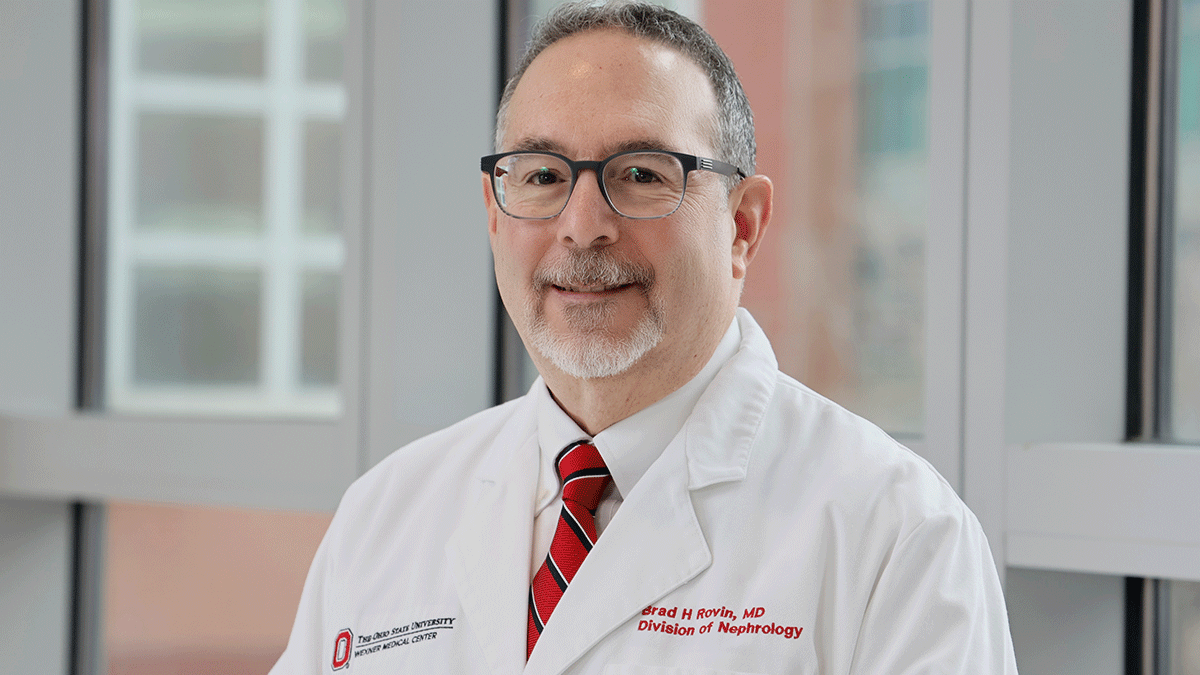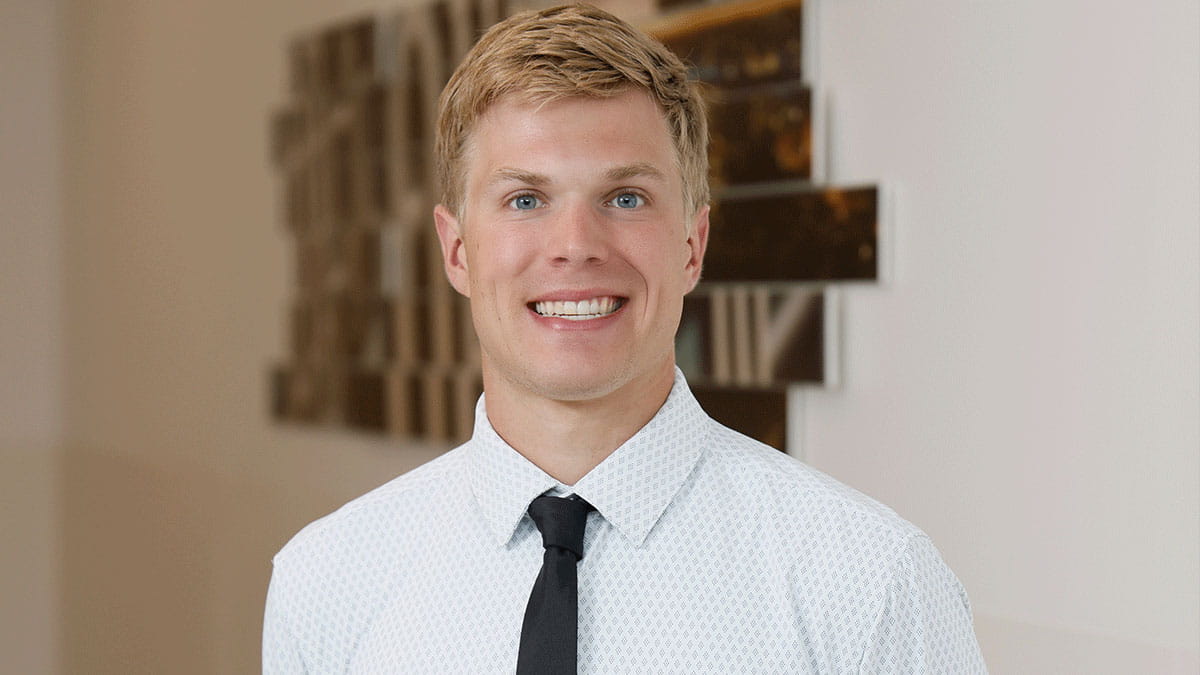The Power of Narrative Medicine: When Doctors and Patients Tell their Stories

An upcoming community discussion will examine how narrative medicine positions storytelling at the center of discovery in encounters and interactions between health care providers, patients and the public. The panel, hosted by The Ohio State University College of Medicine, will take place on Thursday, Oct. 30, at 12:15 p.m.
A group of professors, physicians, writers and community members will discuss how the use of narrative elements, characters, interpreting and paying attention to perspective and the progression and sequence of events further develop understanding. They will discuss how the field of medical humanities is framing current medical education and health care, leading to narrative and medical competence.
James Phelan, PhD, Distinguished University Professor and director of the Medical Humanities program and Project Narrative at The Ohio State University, will begin the conversation by sharing his work teaching and writing about narrative theory. He will demonstrate how to use narrative concepts to interpret a diverse group of fictional, non-fiction and medical narratives.
“My work points to the relevance of teaching students, professionals and patients that there are multiple ways to glean information during caregiver-patient interactions that go beyond compiling a list of symptoms and diagnoses.”
Avraham (Avi) Cooper, MD, is an associate clinical professor of Internal Medicine at the Ohio State College of Medicine, and a pulmonary/critical care physician. He also co-hosts a medical podcast that brings together physicians to examine the different personal and professional elements that contribute to their level of human connection.
“For us, it’s about understanding your ‘why’ so you can learn more about it and find some semblance of an answer that we can explore and discuss together,” Dr. Cooper says.
Erin McConnell, MD, an associate professor of Clinical Medicine in the college, furthered her study of humanistic and social-scientific perspectives of medicine and practice through the MA in Medical Humanities and Social Sciences Program in the Department of English in the College of Arts and Sciences. She practices narrative medicine by asking patients to tell her their stories, and by recommending media for them to consume based on their own stories, illnesses and life experiences.
“To some extent, it can also help inoculate students from the stresses of medical school and the empathy exhaustion that we see take place over years one to four,” Dr. McConnell says. “It helps give a little shot of humanism every now and then.”
At the panel discussion, Pat Wynn Brown, author of Royal Roots: Reimaging a Life Through Humor, a Castle, and the US Navy, will randomly donate a copy of her memoir to an attendee who participates in the discussion. She looks forward to discussing how knowing a person’s own real-life circumstances impacts our ability to understand them and to also develop a deeper understanding of ourselves.
“We can benefit from literature and the arts to expand our understanding of the human condition, and our own inner peace,” Brown says.
Kelli Trinoskey, MA, who also graduated from Ohio State’s Humanism in the Arts & Medicine Program, will highlight the importance of applying narrative skills, and of paying attention to nonverbal cues as closely as what is presented verbally to see and identify details from things left unsaid and unseen.
Register to attend the free event in person or via Zoom, and learn about upcoming community events sponsored by the Medicine and the Arts program.



